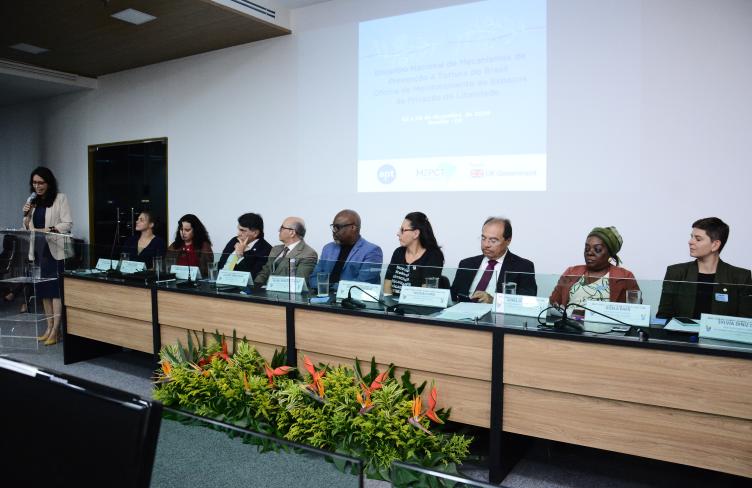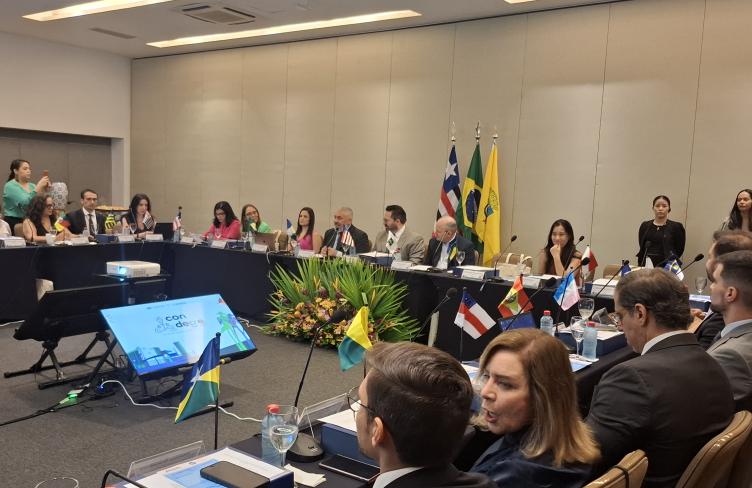
The political turmoil that has grasped Thailand for months has now seen the military stepping in and declaring martial law throughout the country. The National Peace Council and Order Maintaining Council (NPOMC) has, so far, banned political demonstrations, suspended TV and radio programmes to give way to army broadcasts, and blocked internet service providers and social media networks. More than 150 politicians, protest leaders and activists have been summoned to report to the NPOMC and banned from leaving the country without permission.
|
Last Friday the UN Committee against Torture presented its Concluding Observations after the recent review of Thailand. The Committee “…urges the State party to adhere strictly to the absolute prohibition of torture and ensure that the application of Martial Law throughout Thailand under no circumstances violates the rights guaranteed in the Convention.” The Committee also reminded the State (now under the control of the military) that no exceptional circumstances whatsoever, whether a state of war or a threat of war, internal political instability or any other public emergency, may be invoked as a justification of torture. The UN review of Thailand took note of the recent disappearance of Pholachi “Billy” Rakcharoen, a Karen activist. |
The Committee expressed its concern “at numerous and consistent allegations of serious acts of reprisals and threats against human rights defenders, journalists, community leaders and their relatives, including verbal and physical attacks, enforced disappearances and extrajudicial killings, as well as by the lack of information provided on any investigations into such allegations” and urge the State to take immediate action against harassments and attacks suffered by human rights defenders, journalists and community leaders.
Human rights defenders in Thailand are increasingly at risk of arrest and detention. My heart cringed as I read about how Sukanya Prueksakasemsuk and her son, Panitan Prueksakasemsuk, were taken away by the military during the night to unknown whereabouts. Sukanya is the wife of Somyot Prueksakasemsuk, a magazine editor who is serving a 13-year sentence under Thailand’s draconian lese majeste laws against anything that can be perceived as insulting the monarchy. Sukanya has campaigned for the freedom of her husband and others imprisoned under the lese majeste laws and on 23 May she organised a peaceful gathering to oppose the martial law. It is a relief to note that she was finally released on the night of 25 May.
The APT has been working with partners in Thailand for years. In 2013 we welcomed Pornpen Khongkachonkiet, the director of the Cross Cultural Foundation, as our first fellow from the Asia-Pacific region. Pornpen Khongkachonkiet is a leading anti-torture activist in Thailand, working to prevent torture and ill-treatment through law reform and public advocacy, especially in the Southern Thai provinces. She is one of the hundreds of human rights defenders in Thailand who are now at risk, simply for standing up for what is right.
In the current situation it is more important than ever that human rights institutions, such as the National Human Rights Commission of Thailand (NHRCT), are allowed to exercise their mandate to visit places of detention around the country and assess the conditions and treatment of persons deprived of their liberty. This would also give effect to the UN Committee against Torture’s call on the State to “conduct a systematic investigation of all reported instances of intimidation, harassment and attacks with a view to prosecuting and punishing perpetrators and guarantee effective remedies to victims and their families”.
Thailand will be under the international spotlight for the months to come, there is no doubt about that. As a State Party to UN Convention against Torture, Thailand has made the commitment to prevent and prohibit torture. This should not be compromised by the current political challenges and should remain an important yardstick in restoring peace and democracy in the country.


